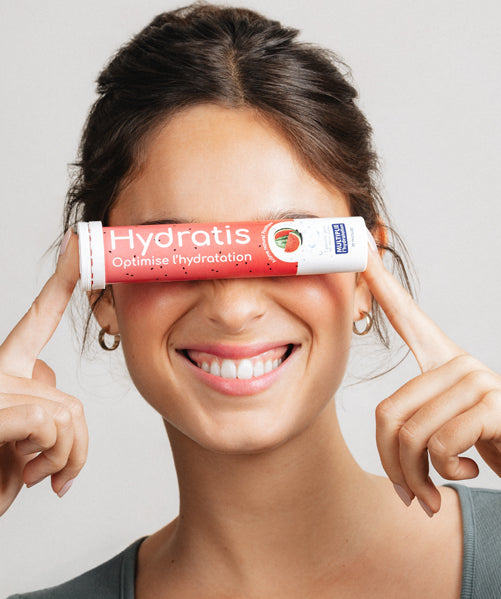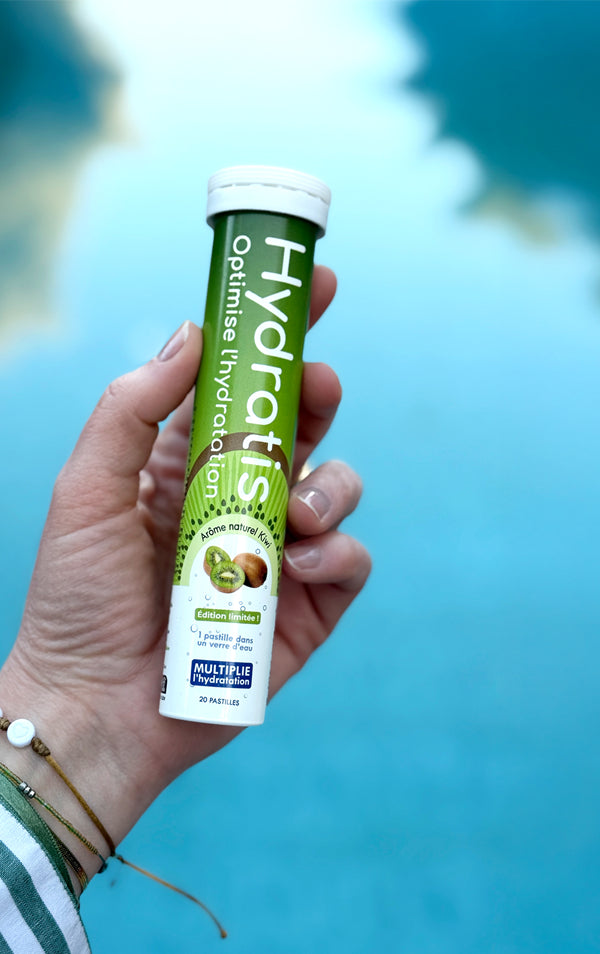Dry mouth and fatigue are two symptoms often dismissed when they occur separately. However, when they happen together, they can reveal a deep imbalance in your body .
Ignoring these signals can impact your daily well-being, sleep, energy levels, and even reveal an underlying problem . In this article, we'll examine the possible causes, practical solutions , and situations where consulting a healthcare professional is essential.
Understanding dry mouth and fatigue
Dry mouth, also called xerostomia It is often perceived as a temporary inconvenience. On the other hand, fatigue is a very common complaint, linked both to a hectic daily life and to medical causes .
When they coexist, these manifestations may indicate a global disorder , affecting metabolism as well as the immune or hormonal system.
Living with one of these persistent ailments negatively impacts daily life. Dry mouth makes it difficult to speak , swallow, or even enjoy meals . Fatigue, meanwhile, limits your concentration, productivity, and social interactions.
Together they create a vicious cycle: oral discomfort disrupts sleep, and fatigue accentuates the feeling of dryness.
What is dry mouth?

Medical definition: xerostomia
Dry mouth is medically defined as an insufficient production of saliva . Saliva, produced by the salivary glands , plays an important role in digestion , lubrication, and protecting the mouth against infections.
A significant decrease in its volume leads to xerostomia .
Typical symptoms
If you suffer from xerostomia , certain signs can help you realize it. These include:
- A burning or tingling sensation ;
- Thick or sticky saliva ;
- Difficulty swallowing or speaking;
- Persistent bad breath ;
- Increased cavities or irritation of the oral mucosa, etc.
Why is saliva essential?
Saliva does more than just moisten the mouth . It contains enzymes that initiate digestion , minerals that protect tooth enamel , and antibodies that prevent infections .
Persistent dry mouth therefore undermines not only your daily comfort but also your general well-being.
What is chronic fatigue?
Fatigue can take many forms. While some are mild and temporary , others may require medical attention.
For example, it's normal to feel tired after a long day or a lack of sleep. However, when it becomes constant, prolonged, and disproportionate to your activities, it's called chronic fatigue or asthenia .
Possible causes of dry mouth and fatigue
The causes of these two ailments may be related to the patient's habits or be of a medical nature.
Common medical causes
Among the medical causes that frequently lead to these two uncomfortable situations , we have:
- Dehydration: lack of water is the simplest and most frequent cause.
- Sjögren's syndrome: this autoimmune disease directly attacks the salivary and lacrimal glands. It causes severe oral dehydration as well as a debilitating state of exhaustion and fatigue.
- Hormonal variations: these directly influence the functioning of the salivary glands and energy levels.
- Side effects of medications : some medical treatments, including antihypertensives, antidepressants and antihistamines, can reduce salivation and cause increased fatigue in some people.
- Autoimmune or neurological diseases: certain pathologies such as multiple sclerosis, lupus or Parkinson's disease can be the cause of these ailments.
- Diabetes : this metabolic disease leads to poor regulation of blood sugar, which promotes dry mouth and can thus generate persistent fatigue.
Furthermore, certain specific cases such as COVID-19 and pregnancy can generate these ailments in a transient manner.
Lifestyle factors
Habits and certain everyday actions can also contribute to these two situations . These include:
- Stress and anxiety: Stress activates the sympathetic nervous system, which reduces saliva production and causes a state of significant exhaustion.
- The consumption of alcohol , tobacco, caffeine : these substances dehydrate, irritate the mucous membranes and disrupt sleep.
- Cases of mouth breathing, especially at night: sleeping with your mouth open exacerbates dryness and causes frequent awakenings during the night. This leads to persistent fatigue despite rest.
- An unbalanced diet : a diet too rich in sugars, salts or processed foods promotes dehydration and lack of energy.
- Cases of insufficient oral hygiene : poor hygiene maintains dryness, infections and increases general discomfort, which can indirectly affect your energy level.
How to diagnose dry mouth and fatigue?
There are solutions for effectively diagnosing these two associated disorders.
Signs to watch for
You should pay attention to certain signs: persistent thirst , a cracked tongue, headaches related to fatigue , daytime sleepiness, and loss of concentration . These signs can indicate illness or a bodily dysfunction . So, give them special attention!
Saliva test
Another way to diagnose your condition is with a salivation test . In this test, the doctor measures the amount of saliva produced over a few minutes. A lower than normal flow rate confirms the diagnosis.
Medical examinations to consider
Depending on how these symptoms manifest, blood tests (blood sugar, hormone levels, autoimmune testing) or specialized examinations (MRI, salivary gland biopsy) may be necessary to establish an accurate diagnosis .
What to do in case of dry mouth and fatigue?
When a person suffers from these ailments, there are both quick solutions and treatments (medical or natural) that can effectively relieve them.
Immediate solutions

The solutions you can implement in the first few days of these symptoms can help relieve discomfort and even improve your condition. For example, you can:
- Hydrate yourself regularly by taking small sips ;
- Consume lozenges or chew sugar-free gum;
- Try to lengthen your sleep periods.
Medical and natural treatments
If quick fixes are not enough, it may be necessary to resort to treatments , whether medical or natural.
Specific medications
In some cases, the doctor may prescribe saliva substitutes or medications that stimulate the salivary glands, such as pilocarpine. These treatments aim to improve oral lubrication in the long term.
Home remedies
Simple solutions exist to relieve dry mouth . They can be applied at home and require only a few everyday items:
- Rinse your mouth with water or a saline solution;
- Avoid mouthwashes containing alcohol;
- Suck on ice cubes to stimulate salivation .
Appropriate diet
A diet rich in hydrating fruits and vegetables such as cucumber, watermelon, and citrus fruits helps to improve salivation.
Limiting spicy, overly salty, or sugary foods also helps reduce feelings of dryness. To combat fatigue, prioritize lean proteins , whole grains, and essential fatty acids.
How to prevent dry mouth and fatigue?
Certain actions or habits can help prevent these ailments and limit the discomfort they cause.
Adopting a healthier lifestyle
Good oral hygiene (gentle brushing, fluoride toothpaste) is essential if you want to avoid dry mouth and a feeling of fatigue. Also avoid tobacco and alcohol to protect your salivary glands .
Managing your anxiety
Managing anxiety and stress plays a key role. Indeed, practicing meditation , yoga, or deep breathing will reduce the impact of anxiety on saliva production and nervous exhaustion.
Monitor your diet and hydration
In addition to staying hydrated , adopt a balanced diet rich in micronutrients . Magnesium, iron, and vitamin B12 are particularly important for combating fatigue .
Reassess your treatments with a professional
If you are taking medications known to cause dry mouth , discuss a possible adjustment to your treatment with your doctor . Never change your treatment on your own; instead, inform your healthcare provider about your condition so they can explore alternatives.
When should you consult a medical professional?
A doctor's intervention may be necessary if you suffer from these disorders. In some cases, it is recommended to consult a doctor as soon as possible in order to obtain appropriate treatment .
Persistent or sudden symptoms
You should consult a doctor if the situation seems to persist despite a good diet and healthy habits . Similarly, the sudden onset of these symptoms without an obvious cause requires prompt medical attention.
Onset of complications
If dryness leads to ulcerations, frequent cavities , or difficulty swallowing, it is essential to consult a healthcare professional . Persistent exhaustion , unexplained weight loss , night sweats, or fever should also raise concern.
Prevention of associated risks
Some serious conditions , such as diabetes or autoimmune diseases , manifest themselves through these troublesome situations. Early diagnosis helps prevent complications and improve the prognosis .
FAQ – Your most frequently asked questions
What disease can cause a dry mouth?
Several conditions are associated with xerostomia: Sjögren's syndrome, diabetes, hypothyroidism, and certain neurological diseases. Medications can also be a cause.
Why am I so tired and do I have a dry mouth?
The simultaneous appearance of these two disorders may stem from simple dehydration or significant anxiety, but it may also reveal a more serious medical problem such as a hormonal imbalance, diabetes, or an autoimmune disease.
What is the cause of fatigue and a pasty mouth?
The sensation of a pasty mouth is often linked to saliva thickened by dehydration or nighttime mouth breathing. When associated with fatigue, it can be a sign of poor lifestyle habits, but also of a more serious underlying condition.
How can I stop having a dry mouth?
Stay hydrated, avoid alcoholic and caffeinated beverages, chew sugar-free gum, and maintain good oral hygiene. If dryness persists, only a specialist can offer appropriate treatment.
Conclusion
Dry mouth and fatigue should not be ignored when they occur together . These sometimes benign ailments can also be early warning signs of more serious problems.
Healthy habits , adequate hydration , and home remedies can often improve the situation . However, if the discomfort persists, a specialist should be consulted for an accurate diagnosis and appropriate treatment .
By paying attention to these signals, you protect your oral health , your daily energy and your overall well-being .
Bibliography
Villa, A., Connell, C.L., & Abati, S. (2014). Diagnosis and management of xerostomia and hyposalivation. Therapeutics and Clinical Risk Management, 11, 45–51. https://doi.org/10.2147/TCRM.S76282
Alhejoury, HA, Mogharbel, LF, Al-Qadhi, MA, Shamlan, SS, Babatin, WM, Alaishan, RAM, & Pullishery, F. (2021). Artificial saliva for therapeutic management of xerostomia: A narrative review. Journal of Pharmacy & Bioallied Sciences, 13(Suppl 2), S903–S907. https://doi.org/10.4103/jpbs.jpbs_236_21
Davies, A.N., & Thompson, J. (2015). Parasympathomimetic drugs for the treatment of salivary gland dysfunction due to radiotherapy. Cochrane Database of Systematic Reviews, 2015(10), CD003782. https://doi.org/10.1002/14651858.CD003782.pub3
Tan, ECK, Lexomboon, D., Sandborgh-Englund, G., Haasum, Y., & Johnell, K. (2018). Medications that cause dry mouth as an adverse effect in older people: A systematic review and meta-analysis. Journal of the American Geriatrics Society, 66(1), 76–84. https://doi.org/10.1111/jgs.15151
Mæland, E., Miyamoto, ST, Hammenfors, D., Valim, V., & Jonsson, MV (2021). Understanding fatigue in Sjögren's syndrome: Outcome measures, biomarkers and possible interventions. Frontiers in Immunology, 12, 703079. https://doi.org/10.3389/fimmu.2021.703079
Miyamoto, ST, Lendrem, DW, Ng, WF, Hackett, KL, & Valim, V. (2019). Managing fatigue in patients with primary Sjögren's syndrome: Challenges and solutions. Open Access Rheumatology: Research and Reviews, 11, 77–88. https://doi.org/10.2147/OARRR.S167990
Dodds, MWJ, Ben Haddou, M., & Day, JEL (2023). The effect of gum chewing on xerostomia and salivary flow rate in elderly and medically compromised subjects: A systematic review and meta-analysis. BMC Oral Health, 23, 406. https://doi.org/10.1186/s12903-023-03084-x
Fife, RS, Chase, WF, Dore, RK, et al. (2002). Cevimeline for the treatment of xerostomia in patients with Sjögren syndrome: A randomized trial. Archives of Internal Medicine, 162(11), 1293–1300. https://doi.org/10.1001/archinte.162.11.1293
Fernández-García, JM, et al. (2025). Hydration and natural mineral waters: A review of the importance of the health of the water and mineral water supply. Family Medicine. SEMERGEN, 51(4), 102441. https://doi.org/10.1016/j.semerg.2024.102441






